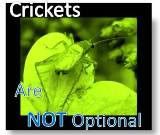 Sunday was a near-perfect day for a field trip to the Parkers Creek section of the American Chestnut Land Trust property in Calvert County on the western shore of the bay, led by Stephanie Mason. Chesapeake Bay’s not really visible from trails on this property, but you can sense it from the end of the Turkey Spur Trail.
Sunday was a near-perfect day for a field trip to the Parkers Creek section of the American Chestnut Land Trust property in Calvert County on the western shore of the bay, led by Stephanie Mason. Chesapeake Bay’s not really visible from trails on this property, but you can sense it from the end of the Turkey Spur Trail.
 We had the place nearly to ourselves. For a Coastal Plain site, the walking is remarkably hilly.
We had the place nearly to ourselves. For a Coastal Plain site, the walking is remarkably hilly.
It was a middling day for birds. We watched a Green Heron stalking its lunch on Parkers Creek; had good looks at Prothonotary Warbler, Scarlet Tanager, and Northern Parula; heard Ovenbird (frequently), Wood Thrush, Hooded Warbler, Worm-eating Warbler, White-eyed Vireo.
 At the lunch break, a skink mistook Ethan’s trousers for an extension of the log he was sitting on.
At the lunch break, a skink mistook Ethan’s trousers for an extension of the log he was sitting on.
Some nice butterflies: Spicebush Swallowtail, several Zebra Swallowtails, and two Vanessa species, an American Lady and numerous Red Admirals.
 Some good flowering plants to look at: the place is covered with Virginia Waterleaf (Hydrophyllum virginianum). Stephanie explained an concept that I hadn’t latched onto before, the difference between a determinate inflorescence (the plant decides how many florets to make and it’s done) and an indeterminate inflorescence (flower ’til you drop, like we saw with Mysotis).
Some good flowering plants to look at: the place is covered with Virginia Waterleaf (Hydrophyllum virginianum). Stephanie explained an concept that I hadn’t latched onto before, the difference between a determinate inflorescence (the plant decides how many florets to make and it’s done) and an indeterminate inflorescence (flower ’til you drop, like we saw with Mysotis).

 And some great ferns. The image of Ebony Spleenwort (Asplenium platyneuron) at the left is an attempt to show the dark brown rachis. New York Fern (Thelypteris noveboracensis), at the right, tapers to a point at both ends, like a New Yorker burning his candle. Hay-scented Fern is the other species in our area that forms large clonal colonies like New York Fern.
And some great ferns. The image of Ebony Spleenwort (Asplenium platyneuron) at the left is an attempt to show the dark brown rachis. New York Fern (Thelypteris noveboracensis), at the right, tapers to a point at both ends, like a New Yorker burning his candle. Hay-scented Fern is the other species in our area that forms large clonal colonies like New York Fern.
 Stephanie made the call on this Netted Chain Fern (Woodwardia areolata), which is very similar in appearance to Senstive Fern. I need to learn to look for fertile fronds when I’m looking at ferns.
Stephanie made the call on this Netted Chain Fern (Woodwardia areolata), which is very similar in appearance to Senstive Fern. I need to learn to look for fertile fronds when I’m looking at ferns.















